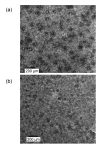Increasing the immune activity of exosomes: the effect of miRNA-depleted exosome proteins on activating dendritic cell/cytokine-induced killer cells against pancreatic cancer
- PMID: 27143262
- PMCID: PMC4868825
- DOI: 10.1631/jzus.B1500305
Increasing the immune activity of exosomes: the effect of miRNA-depleted exosome proteins on activating dendritic cell/cytokine-induced killer cells against pancreatic cancer
Abstract
Background: Tumor-derived exosomes were considered to be potential candidates for tumor vaccines because they are abundant in immune-regulating proteins, whereas tumor exosomal miRNAs may induce immune tolerance, thereby having an opposite immune function.
Objective: This study was designed to separate exosomal protein and depleted exosomal microRNAs (miRNAs), increasing the immune activity of exosomes for activating dendritic cell/cytokine-induced killer cells (DC/CIKs) against pancreatic cancer (PC).
Methods: PC-derived exosomes (PEs) were extracted from cultured PANC-1 cell supernatants and then ruptured; this was followed by ultrafiltered exosome lysates (UELs). DCs were stimulated with lipopolysaccharide (LPS), PE, and UEL, followed by co-culture with CIKs. The anti-tumor effects of DC/CIKs against PC were evaluated by proliferation and killing rates, tumor necrosis factor-α (TNF-α) and perforin secretion. Exosomal miRNAs were depleted after lysis and ultrafiltration, while 128 proteins were retained, including several immune-activating proteins.
Results: UEL-stimulated DC/CIKs showed a higher killing rate than LPS- and PE-stimulated DC/CIKs.
Conclusions: miRNA-depleted exosome proteins may be promising agonists for specifically activating DC/CIKs against PC.
Keywords: Dendritic cell; Exosome; MicroRNAs; Pancreatic cancer.
Conflict of interest statement
This article does not contain any studies with human or animal subjects performed by any of the authors.
Figures



Comment in
-
Is the exosome a potential target for cancer immunotherapy?Ann Transl Med. 2017 Mar;5(5):117. doi: 10.21037/atm.2017.01.47. Ann Transl Med. 2017. PMID: 28361082 Free PMC article. No abstract available.
References
-
- Azmi AS, Bao B, Sarkar FH. Exosomes in cancer development, metastasis, and drug resistance: a comprehensive review. Cancer Metastasis Rev. 2013;32(3-4):623–642. (Available from: http://dx.doi.org/10.1007/s10555-013-9441-9) - DOI - PMC - PubMed
-
- Baj-Krzyworzeka M, Szatanek R, Weglarczyk K, et al. Tumour-derived microvesicles modulate biological activity of human monocytes. Immunol Lett. 2007;113(2):76–82. (Available from: http://dx.doi.org/10.1016/j.imlet.2007.07.014) - DOI - PubMed
-
- Chen J, Ding G, Chen W. The anti-tumor activity of DC/CTL induced by cholangiocarcinoma derived exosome and its ultrafiltered lysate. Chin J Exp Surg. 2013;30:2258–2261.
-
- Chung MJ, Park JY, Bang S, et al. Phase II clinical trial of ex vivo-expanded cytokine-induced killer cells therapy in advanced pancreatic cancer. Cancer Immunol Immunother. 2014;63(9):939–946. (Available from: http://dx.doi.org/10.1007/s00262-014-1566-3) - DOI - PMC - PubMed
-
- Duke-Cohan JS, Tang W, Schlossman SF. Attractin: a cub-family protease involved in T cell-monocyte/macrophage interactions. In: Langner J, Ansorge S, editors. Cellular Peptidases in Immune Functions and Diseases 2. US: Springer; 2002. pp. 173–185. (Available from: http://dx.doi.org/10.1007/0-306-46826-3_20) - DOI - PubMed
MeSH terms
Substances
LinkOut - more resources
Full Text Sources
Other Literature Sources
Medical
Molecular Biology Databases

